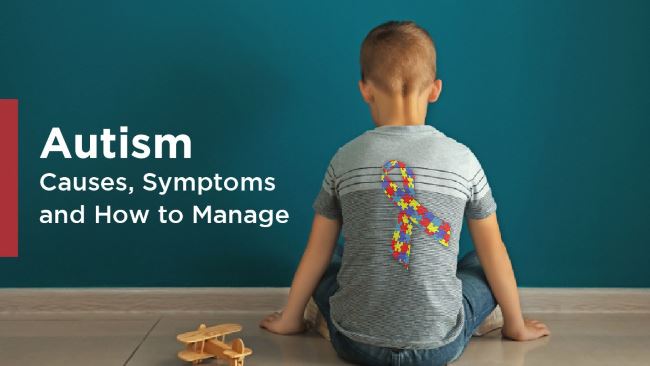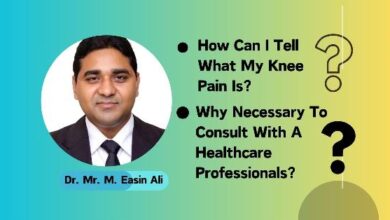Autism: Six Symptoms, Treatments, and the Need for Awareness

The number of children diagnosed with autism is steadily increasing. Scientists suggest that environmental pollution might be a contributing factor. Children with autism often do not experience typical cognitive development, necessitating specialized care and services. Here’s an informative info graphic on autism that I found interesting and wanted to share.
What is Autism?
Autism is a congenital condition that can develop into a mental health issue. It occurs due to disruptions in brain development during pregnancy. Generally, autistic children have significantly lower intelligence.
Some autistic children, however, exhibit extraordinary skills in areas like mathematics, music, or drawing. Approximately 1–2 children per thousand are born with autism. Boys are 3–4 times more likely than girls to develop autism. Parents typically notice signs of autism in their children between 18 months and 2 years of age. Autistic children may also experience seizures.
Misconceptions about Children’s Mental Health in Bangladesh
A study on trainees revealed that only 40% believed medication could be used for mental illnesses in children. During a seminar on World Autism Awareness Day at Dhaka Medical College, a distinguished professor humorously highlighted societal views on autism by saying:
“There are two kinds of mad people—big mad people and little mad people (referring to autistic children); treating big mad people is easier, but little mad people are tougher to handle.”
Many educated individuals do not consider autism a mental illness. Interestingly, autism is classified as a mental disorder by both the DSM-IV TR (American Psychiatric Association) and the ICD-10 (World Health Organization).
Although autism is a neurodevelopmental disorder, autistic children are several times more likely than others to develop mental health conditions, necessitating assistance from mental health specialists.
Characteristics of Autism
Autism is now a globally discussed issue, and Bangladesh is no exception. Autism is a biological condition similar to physical or intellectual disabilities. It is often characterized as a neurological issue involving social interaction, communication, and intellectual challenges.
Autistic children exhibit unusual responses to physical stimuli and challenges in regulating sensory input, which can manifest in their behavior and cognitive functions.
What Causes Autism?
The exact cause of autism remains unidentified. However, researchers suspect genetic factors and possible triggers such as:
- Dietary habits
- Digestive system issues
- Mercury toxicity
- Vitamin deficiencies
- Measles infection during pregnancy
- MMR vaccination in children
None of these factors have been conclusively proven, and research is ongoing.
Key Features of Autism
Autism presents unique challenges that parents or caregivers must understand to provide proper care. Here are five main features of autism:
- Difficulty understanding interpersonal relationships.
- Challenges in communication or interaction.
- Problems with physical movements and coordination.
- Disruptions in physical and mental growth or development.
- Issues responding appropriately to sensory stimuli.
Beyond these primary features, autistic children may exhibit additional characteristics.
Rights of Autistic Children
Autistic children have limitless potential if given opportunities for proper development. Before reacting negatively to a child’s unusual behavior, it is essential to determine whether the child has autism. A single careless comment can lead to significant mental health issues.
In Bangladesh, social stigma often prevents parents from disclosing their child’s autism, fearing societal judgment. Let us unite to create a supportive environment for these children, fostering their smiles and their growth.
Six Common Challenges for Autistic Children
While some believe autistic children are exceptionally gifted, the reality is that many depend on others for everyday tasks. Here are six common challenges they face:
- Sensory Issues: Hypersensitivity or lack of response to sights, sounds, smells, tastes, and touch.
- Sleep Disorders: Problems with falling asleep or staying asleep, affecting focus, behavior, and productivity.
- Intellectual Disabilities: Some autistic children show mild to severe intellectual impairments.
- Seizures: Approximately one in four autistic children experiences seizures, either in childhood or adolescence.
- Digestive Problems: Issues like constipation, diarrhea, abdominal pain, and bloating are common.
- Mental Health Challenges: Autistic children are at higher risk for anxiety, depression, and attention deficits.
Treatment of Autism
If a child shows signs of autism, immediate consultation with a doctor or early intervention service provider is essential. Early diagnosis and intervention can significantly mitigate the harmful effects of autism.
Effective treatment involves:
- Intensive behavioral therapy
- School-based training programs
- Proper healthcare
- Medication when necessary
Awareness is key to ensuring the healthy growth and skill development of autistic children. A lack of early intervention often exacerbates issues, leading to aggressive and uncontrollable behaviors. Early identification and management are critical to improving outcomes.
Occupational Therapy
Occupational therapists assess the challenges faced by autistic children and develop tailored treatment plans to support their physical, emotional, and social development. They use various techniques, such as:
- Sensory integration therapy
- Physical exercises
- Cognitive activities
- Speech therapy
- Functional equipment
- Daily routine training
Raising Awareness
As autism becomes a more prominent topic, society, healthcare providers, and educators can enhance awareness through workshops, seminars, rallies, and publications. Together, we can create an inclusive environment that supports autistic children and their families.
We believe-If you have something useful to others then give it, this habit would make our planet a piece of heaven.




